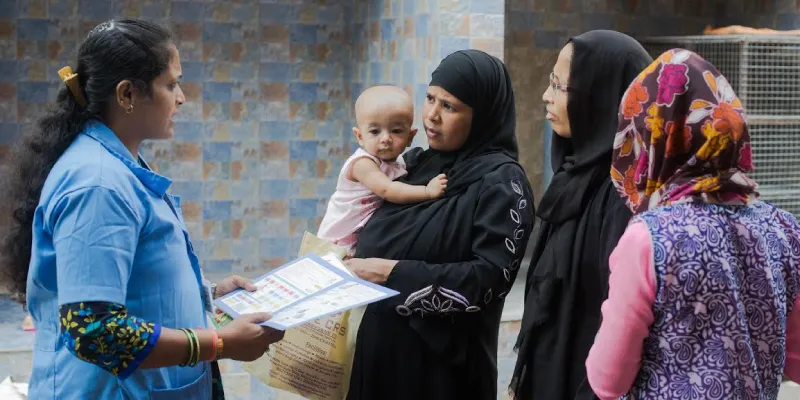How Mumbai-based non-profit SNEHA has impacted the lives of 37,000 pregnant women and 25,000 undernourished children
The Society for Nutrition, Education and Health Action targets four major areas of public health - maternal and newborn health, child health and nutrition, adolescent health and sexuality, and prevention of violence against women and children.
The Society for Nutrition, Education and Health Action (SNEHA) was established in 1999 by a group of doctors and social workers who believed that curative care in hospitals was not enough and that there was a need to go beyond the walls of the hospital to save more lives through prevention and education.

Dr Armida Fernandez, the Founder and Chairperson of SNEHA, was a professor and Head of the Department of Neonatology at Lokmanya Tilak Municipal General (LTMG) Hospital and Medical College, Mumbai’s largest public hospital, for over 25 years. She also served as Dean of the hospital for three years. In 1989, she set up a human milk bank in Sion Hospital, the first of its kind in Asia. In 2004, she was honoured as an Ashoka Fellow and has since then won several awards.
SNEHA believes that every woman and child count, and aims to break the “intergenerational cycle of poor health among women and children living in vulnerable settlements”. The society’s work is centred on three principles — evidence-based interventions, scaling through partnerships, and sustainability.
YourStory talks to Vanessa D'Souza, the CEO of SNEHA.
YourStory: Tell us more about your programmes and initiatives.
Vanessa D'Souza: SNEHA targets four major areas of public health - maternal and newborn health, child health and nutrition, adolescent health and sexuality, and prevention of violence against women and children. SNEHA’s beneficiaries are from within the most marginalised and vulnerable communities living in informal settlements in urban areas.
SNEHA’s approach is two-pronged: we work with vulnerable communities, to improve health-seeking behaviour and awareness of health services, as well as with public health systems and health-care providers, to improve service delivery through training, capacity building and protocol design.
We follow an integrated life-cycle approach to break the inter-generational cycle of poor health by investing heavily during the first 1,000 days of life (from conception to the child’s second birthday) to improve child health and nutrition outcomes.
We create evidence-based models of urban health working directly in and around Mumbai and scale these models in partnerships with other NGOs and Governmental bodies in other geographies. Our electronic data collection and data-driven approach facilitates feedback into programme implementation.
Since 2016, we have been working alongside the National Health Mission, to form women’s groups in slum communities in 95 urban locations across Maharashtra. Global evidence has endorsed women’s groups as an effective mechanism for the community to partner public health systems, to build community ownership, engage in decentralised planning with the urban local body (ULB), to monitor its delivery on healthcare, and to generate a movement for transformation in health outcomes.
YS: What has been the impact so far?
VD: We have assisted 37,000 women in pregnancy and high-risk deliveries.
● We have prevented and treated malnutrition in 25,000 children less 5 years of age.
● We have addressed cases of domestic violence through counselling, legal aid among 8214 women.
● We have worked with 13,000 adolescents and youth (11-24 years) on fostering positive attitudes towards sexuality, gender-equity and preventive and promotive education on physical and mental health.
● We have trained 6,000 government health workers and police.
● We have formed 5,155 women’s groups and work with an estimated number of 760,000 people.
YS: What initiatives are in the pipeline?
VD: We will continue to work on urban health of the most vulnerable women and children. Our focus will be:
a) To build evidence-based models to address emerging public health issues like: stunting in children; mental health at the intersection of gender-based violence; addressing adolescent health issues like anaemia, mental health and developing gender equitable mindsets in youth; family health model etc.
b) To scale our evidence-based models in partnership with state/central governments and other NGOs.
Our goal is to improve the quality of urban public healthcare so that the most vulnerable women and children can easily avail of quality health services. We also seek to educate, inform, and empower women to take care of their own health and that of their family so they can all reach full potential and contribute to society.







